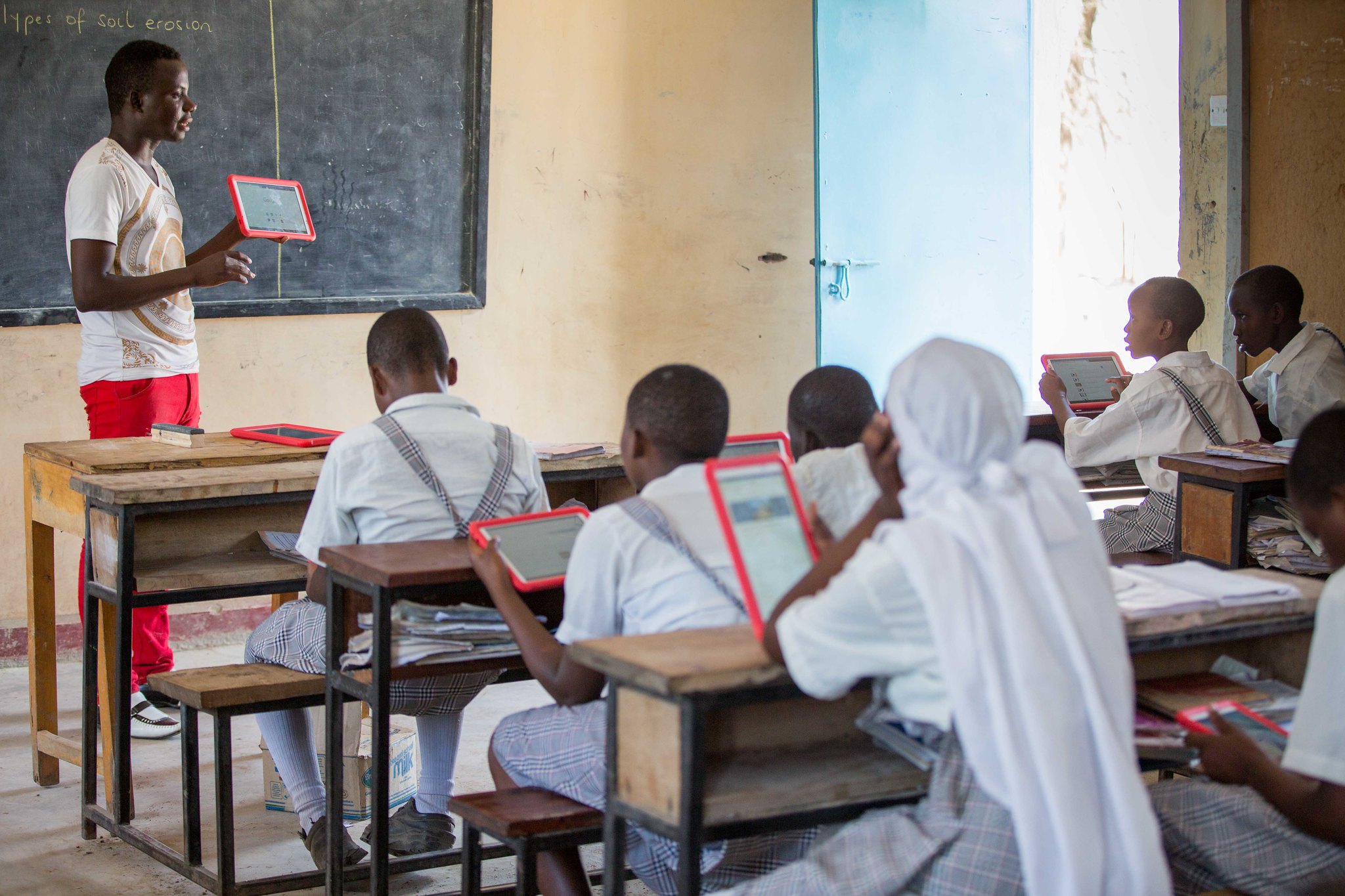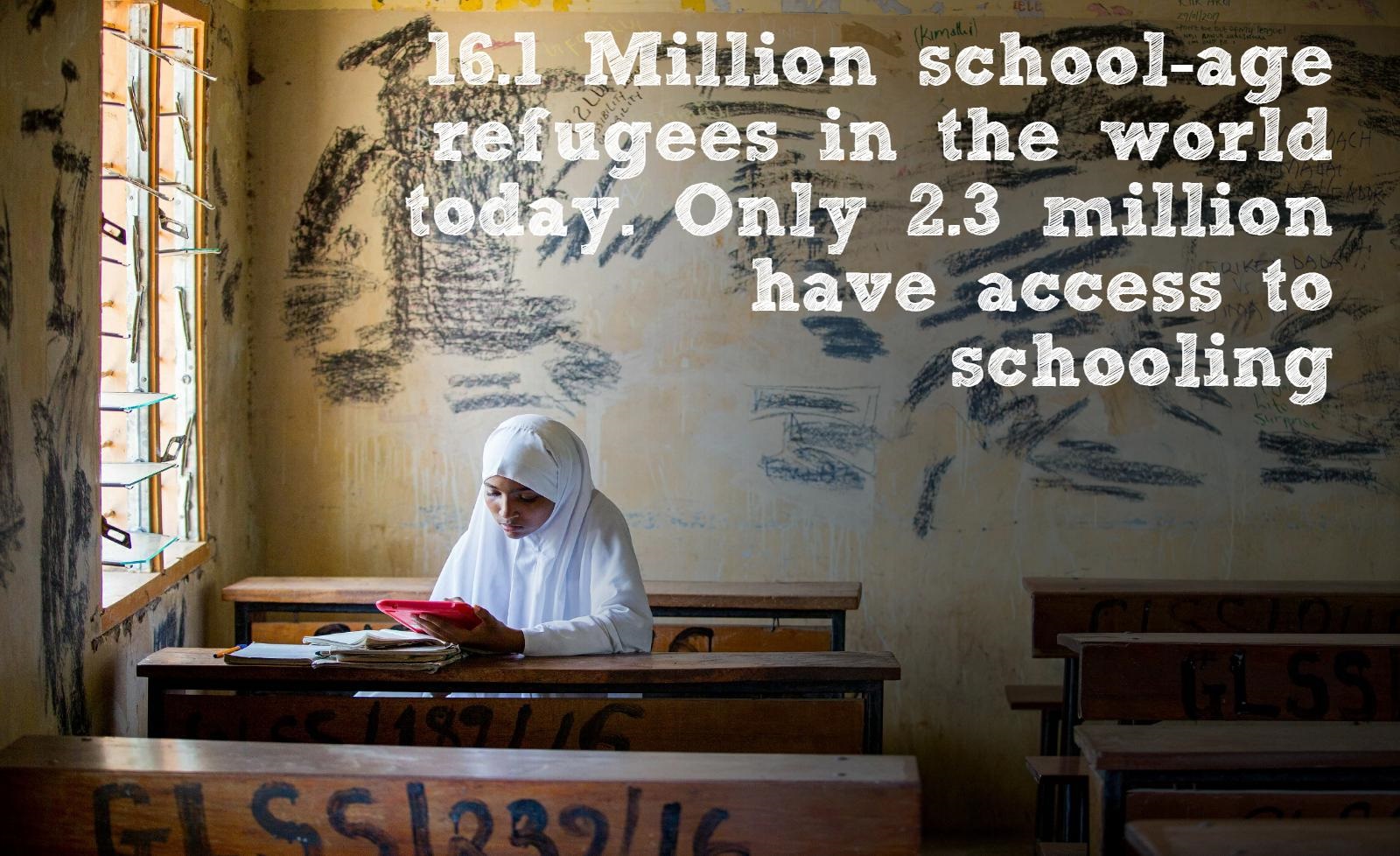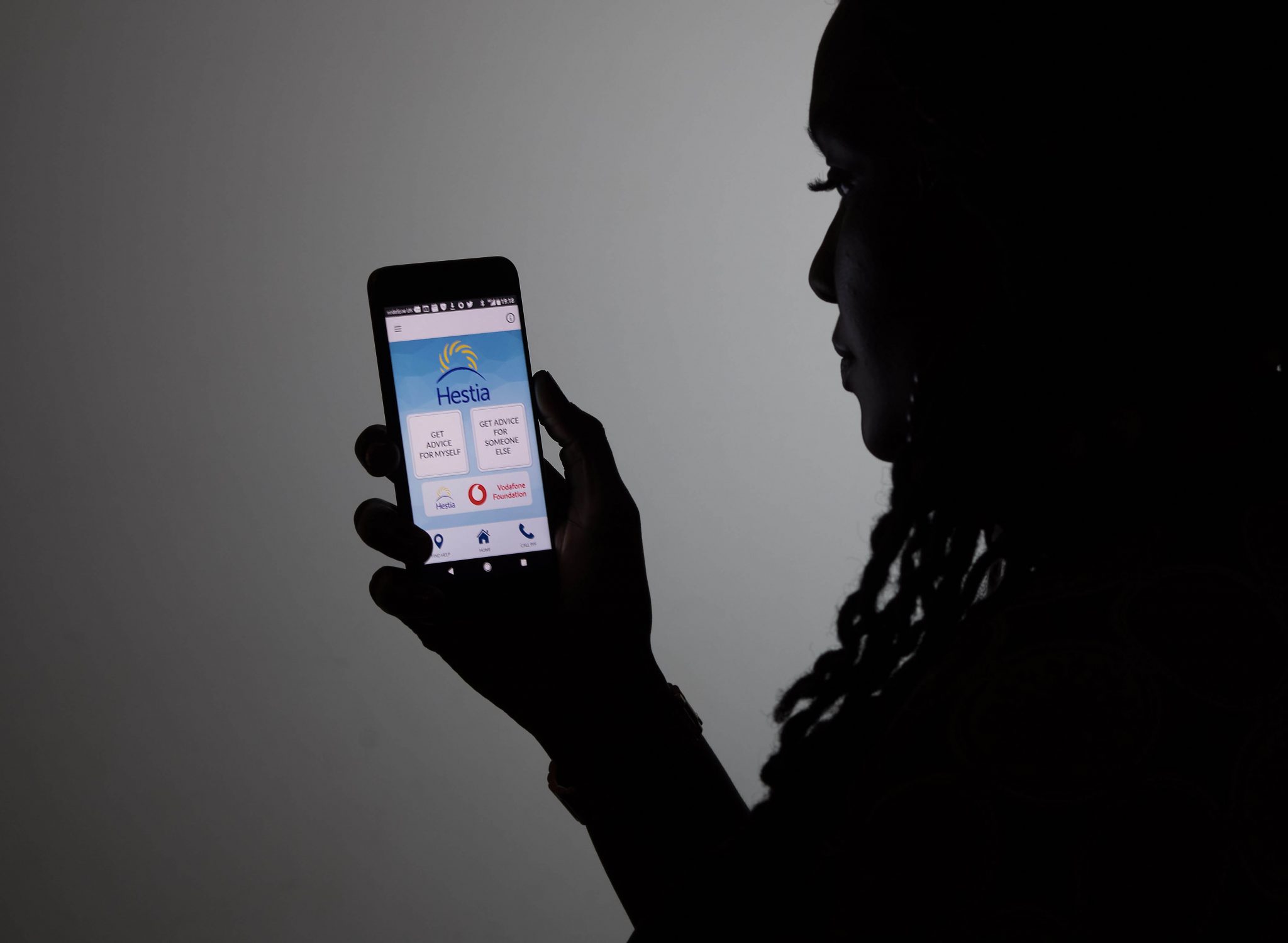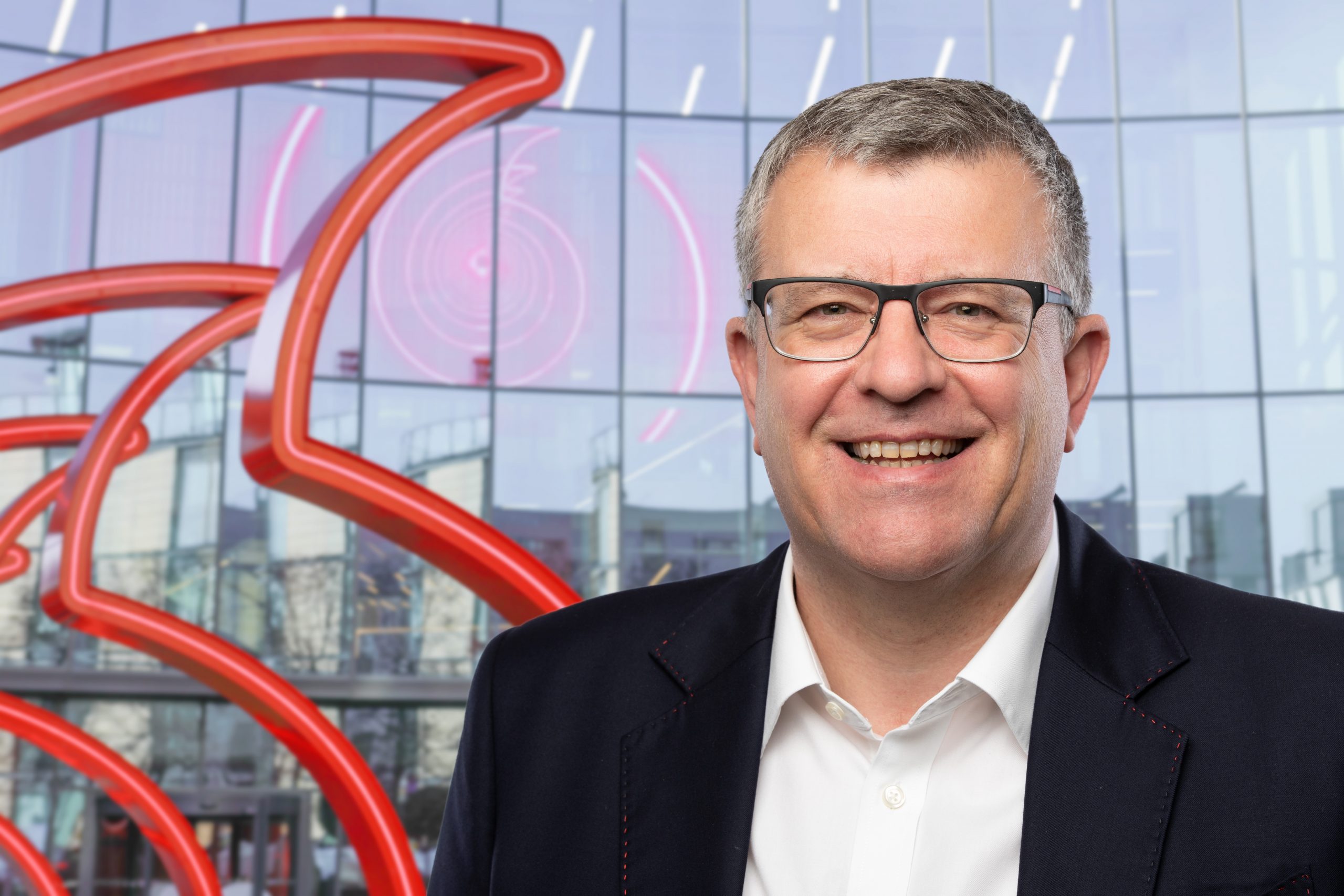
Instant Classrooms have already benefited 86,500 refugee students
“I have a dream of becoming a journalist and in this world, without education, you can not do anything.”
Merinas, a resident of the Kakuma refugee camp in North-western Kenya, is a 19-year-old with aspirations and ambitions just like any other. The Vodafone Foundation, which has already helped bring good quality education to thousands of refugee students like Merinas, is now expanding its efforts to help even more young people.
The Foundation’s Instant Classroom is a free “school in a box”, featuring all the technology teachers need to set up a wirelessly connected classroom in minutes.
Using these Instant Classroom kits, 36 Instant Network Schools have been set up across eight refugee camps in Kenya, Tanzania, the Democratic Republic of Congo, and South Sudan. So far, 1,000 teachers have used the Instant Classrooms to help educate 86,500 refugee students, and the Vodafone Foundation is working to set up even more. Working with the United Nations High Commissioner for Refugees (UNHCR), the Foundation has pledged to help half a million refugee students by 2025.
United Nations High Commissioner for Refugees, Filippo Grandi said:
“We are very proud of our partnership with the Vodafone Foundation. Their continued commitment will help refugees in some of the most challenging environments, opening a window to the world through connected learning. Education is crucial in offering refugees the chance to rebuild their lives. This expanded partnership will help break barriers to education, allowing refugees to better shape their own futures.”

Each Instant Classroom consists of:
- 25 tablets for students
- A laptop for the teacher
- A projector
- A speaker
- A Wi-Fi router that uses 3G to connect to the internet
- A charger that can simultaneously recharge all the equipment
- All the necessary cables
- Localised educational materials
The programme has already led to a 61% increase in ICT (information and communications technology) literacy amongst participating students, and a 125% increase amongst their teachers.
Merinas enthuses about the benefits of her Instant Network School, saying:
When you look at this camp, we have so many challenges and many girls want to get an education. Those tablets have helped us!
About Instant Network Schools
Vodafone Foundation Instant Network Schools (INS) programme aims to connect refugee students with a good quality digital education and improve ICT literacy and digital skills. Vodafone Foundation and the United Nations High Commissioner for Refugees (UNHCR) have worked together since 2013 to enhance the quality of education in refugee camps. The INS programme was co-designed by the Vodafone Foundation Instant Network team and UNHCR’s Innovation and Education teams leveraging Vodafone’s technical expertise and core capabilities. Vodafone Foundation’s Instant Classroom is helping shape UNHCR’s Connected Education approach. As of March 2019, Vodafone Foundation and UNHCR had deployed 36 Instant Network Schools, benefiting more than 86,000 refugee students and 1,000 teachers across eight refugee camps in Kenya, Tanzania, the Democratic Republic of Congo, and South Sudan. The INS programme has had a significant impact within the schools in refugee camps by ensuring that refugees, and the communities that host them, have access to accredited, quality, and relevant learning opportunities
About UNHCR
UNHCR, the UN Refugee Agency, is a global organisation dedicated to saving lives, protecting rights and building a better future for people forced to flee their homes because of conflict and persecution. It delivers life-saving assistance such as shelter, food and water, helps safeguard fundamental human rights, and develops solutions that ensure people have a safe place to call home. It works in more than 130 countries, using its expertise to protect and care for millions of people.




